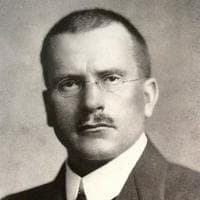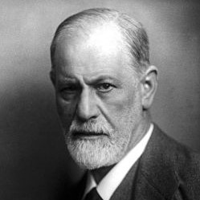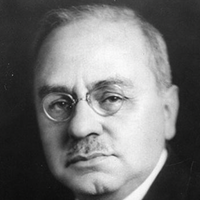Alfred Adler MBTI Personality Type
Personality
What personality type is Alfred Adler? Alfred Adler is an ENFJ personality type in MBTI, 9w8 - so/sx - 952 in Enneagram, SCOAI in Big 5, ESE in Socionics.
I want to begin by saying that this man’s writing has aided me in becoming a much more healthy and mature individual. I would recommend to anyone that they pick up Understanding Human Nature, as the ideas presented in it are very much intended to be readable for the general audience. With that out of the way, I would like to suggest that Adler was an ESE rather than EIE. For one, he was not attracted to psychology to satisfy an abstract interest, but instead to cultivate positive community feeling and directly affect his fellow man. In fact, his books are simply a collection of lecture notes, as he believed the teachings of psychology could only be taught through the direct engagement in the lives of other humans. ¶ Edward Hoffman: "Temperamentally, [Freud and Adler] were quite different. Freud's major motive for entering medicine had been research... He made it clear that treating patients was for him a largely unpleasant financial necessity... Few... would ever describe him as a warm or jovial person. In contrast, Adler... had never been drawn to laboratory investigation. He enjoyed treating patients, as well as lecturing before a wide variety of nonprofessional audiences." ¶ "[Adler believed that] Only by taking psychology's teachings to the masses of men could a more harmonious world be achieved." EIEs in contrast struggle with the practical implementation of their abstractions and prefer to delegate this domain to others, instead focusing on expressing emotionally charged and grand visions of what is to come to stimulate and mobilize their audience. Fulfilling one’s mundane but necessary everyday duties can often depress the EIE and is to be avoided as much as possible. Chapter 11 of the aforementioned book is dedicated to criticizing ambition and the pursuit of power, seeing this as a violation of social interest. The EIE, being part of the beta quadra, deeply desires to carve their name on the pillars of history and strives for glory with a zealous passion; they are aristocratic, elitist, and power-hungry. ¶ “Our vain person seeks some privileged position, holds himself apart from the mainstream of life, and, standing apart, watches the comings and goings of the rest of humankind with a certain mistrust; every fellow-creature is an enemy… Often we will find them deeply in doubt, entangled in important considerations that seem to be logical, and which give them the semblance of being in the right. However in the course of their considerations they waste their opportunities, lose contact with life and society and shirk the tasks that everyone must accomplish.” Adler does not seem to be weak in Se, as he is still present enough to not lose contact with reality and is self-assured in his will to satisfy the necessary course of actions to complete his goals rather than taking a tentative slant that is characteristic of Ni ego types. Adler is also a democratic type and believes in the worth of all humans equally, not according to their social standing nor group affiliations. He rejects chauvinism in all forms. ¶ “A haughty attitude creates a new elite of people born in a family that is ‘better’ than all other families… and feels itself predestined… to maintain certain privileges.” He even rejects the mystical nature of Ni related matters, seeing things such as witchcraft as mere superstition and an opportunity for vain individuals to fulfill their power complexes. EIEs in particular are heavily drawn to subjects such as esotericism and the occult. ¶ “There are many examples of this tendency, for example, among the large group of people involved in spiritualism, psychic research, telepathy and similar exploits. These are composed of people who are anxious to grow beyond the boundaries of mere humanity, who want to possess superhuman powers, who wish to remove themselves beyond time and space, and be in communication with ghosts and the spirits of the dead.“ Adler was known for being an engaging and charismatic communicator who could emotionally disarm his interlocutor and personally impact the lives of his clients and students. He believed in embodying his ideas and aimed to create a positive and nourishing environment for all that he came across. What an excellent representative of the ESE!
Biography
Alfred Adler (7 February 1870 – 28 May 1937) was an Austrian medical doctor, psychotherapist, and founder of the school of individual psychology. His emphasis on the importance of feelings of inferiority, the inferiority complex, is recognized as an isolating element which plays a key role in personality development. Alfred Adler considered human beings as an individual whole, therefore he called his psychology "Individual Psychology" (Orgler 1976). Adler was the first to emphasize the importance of the social element in the re-adjustment process of the individual and who carried psychiatry into the community. A Review of General Psychology survey, published in 2002, ranked Adler as the 67th most eminent psychologist of the 20th century.
Related Personalities

Carl Jung

Jordan Peterson

Sigmund Freud

Isabel Briggs Myers

Claudio Naranjo

Katherine Fauvre

Andrew Huberman

Viktor Frankl
